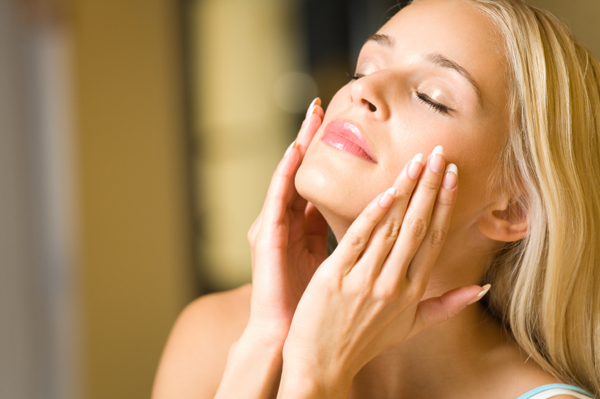What to do, and what not to do to have beautiful, moisturized skin in the winter
Winter time, with its fond moments in the snow, ice skating or celebrating a holiday can be memorable, but not so comfortable with the way the season dries out our
skin. The cold weather is dry, which means less moisture in the air, and thus less moisture for your skin to hold on to. Think of like leaving a loaf of bread out in the open without a covering. It’s bound to get dry. Then we go inside to warmed up houses and hot baths, which is cozy, but does even more damage to our dry skin. To compare, now imagine that dried out loaf being put into the microwave, or the toaster – the heat doesn’t help it regain its moisture, it only turns it to a crisp!
Most of us respond by using loads of lotion that we get from the drug store. This may not be bad, but the trick is finding the right lotion. You see, your outermost layer of skin, called the stratum corneum, acts as a shield to the rest of your skin, so that moisture doesn’t get out from the deeper layers. What you want to do is help your skin retain its moisture, not try to block the pores with an additional top layer of lotion that will easily come off. Absorption is key, and picking a good-quality lotion that will actually absorb into your skin is essential. Otherwise you’re effectively going to clog your pores and make your skin over-dependent on the lotion, without actually healing the root of the dryness problem.
Not only that, but we need to realize our skin is an organ. It doesn’t just cover up our organs – it also needs the nutrition, hydration and good health practices that we give to the rest of our body. For that reason, it’s important to maintain a healthy diet if we are to have healthy winter skin. Drinking caffeine, for instance, is very dehydrating. Not only can it have an effect on us internally, that effect works from the inside out to dry up our skin as well.
Here are some healthy winter skin habits to keep you glowing all year round:
1) Avoid too much soap and hot water. These only dry out our skin, stripping it of moisture. If you have to clean a lot and come in contact with chemicals, wear gloves as much as possible. Take lukewarm baths and showers. Stay away from anti-bacterial soaps, which are unnecessary and will dry your hands up even more.
2) Re-evaluate your skin care products and switch over to the kind that will tailor your skin’s winter needs. For example, instead of the harsh face wash you use to get rid of your shiny nose at other times of the year, use a cleanser that will still do the job but that is meant for more sensitive skin, so that it won’t strip you of much needed moisture.
3) Turn the heat down in your house. Not only will you save on your heating bill, you’ll also save your skin’s moisture! Don’t worry if you’re cold at first, you’ll likely get acclimatized quickly, since our body can adjust its comfort level when the temperatures change.
4) Remember to exfoliate. We talked about using a proper lotion that will absorb into your skin, but the dryness that you can feel is dead skin that wants to shed anyway. It’s not going to help to moisturize what is trying to come off, so help your skin by using a loofa or exfoliating scrub to get rid of dead skin cells. On your feet, use a pumis stone to get rid of the dead skin on your heels. A simple recipe for an exfoliating scrub is to use sea salt mixed with olive oil.
5) Eat ’skin healthy’ foods. Add
Vitamin E, nuts, and healthy oils to your diet. Also eat orange foods like squash and carrots for Vitamin A.
6) Use humidifiers throughout your home to help replenish the moisture in the air that is stripping your skin and making it winter dry.
7) If you suffer from acne, avoid oils that clog, like shea butter. Rather, stick to oils such as almond or mineral oil that won’t clog your pores. Add essential oils and rub in to your skin.
8 )Use a sunscreen. Often we think sunscreen is for bright sunshine, but in fact it is for protecting our delicate skin from damaging UV rays, which we are exposed to all-year round.
9) Avoid using popular clay masks and peels when performing your regular facial routine, which are moisture enemies. Instead, opt for something more moisturizing and hydrating.
10) Take a baking soda bath. Baking soda is a wonder ingredient we can find in our homes easily and can give relief of itchy dry skin. If taking a bath isn’t for you and you’re itchy from dry skin, you could try itch creams or see your doctor in case it’s something that needs special treatment, such as eczema.
11) Apply your moisturizer right after your bath. That’s when your skin has water in it, and you want to lock it in with a moisturizer that will help your skin reach the right pH balance.










